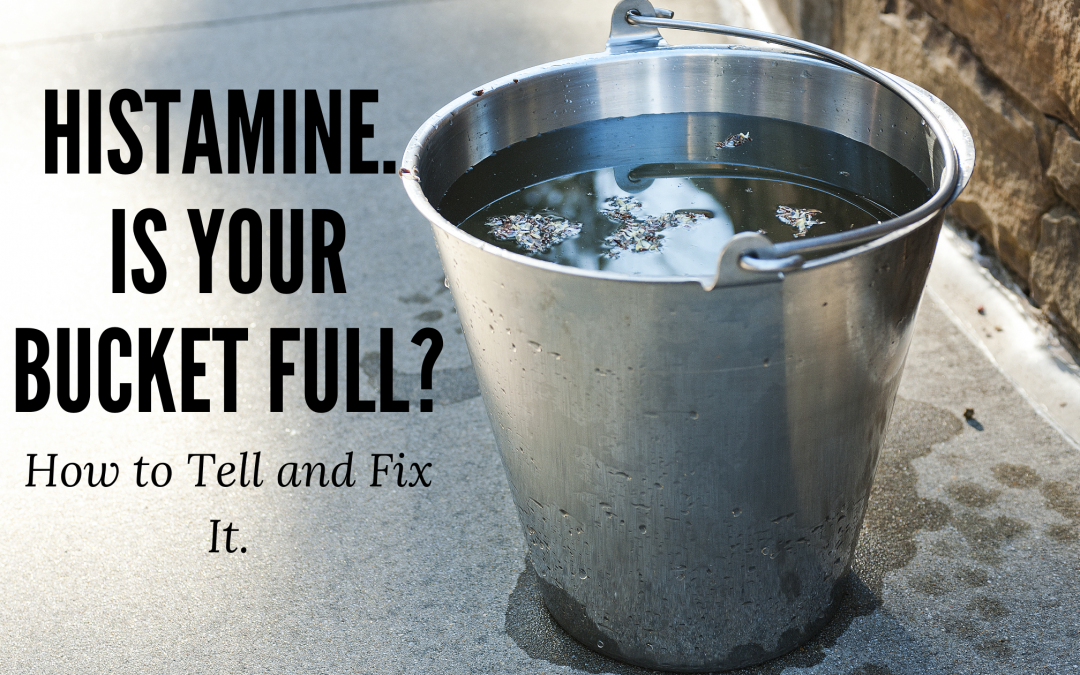What is histamine? It is a compound released by the body in response to an environmental trigger, such as irritants in the air and certain foods depending on the person.
Histamine builds up in the body similarly to how water fills up a bucket. You only have so much room to hold the water or histamine. Once that bucket is full, histamine beings to spill out, causing your immune system to react.
What happens when it spills? Digestive issues, rashes, or skin irrational, runny noses, congestion in your nasal area, and fatigue are all common reactions, reactions that are familiar to many of us.
What Are Some Common Histamines?
- Dust and pollen
- Some medications such as antibiotic, some painkillers, certain antidepressants, and even some antihistamines!
- Stress! Physical or emotional. Both can trigger histamine release. After all, who wants stress in their bodies?
- Some foods, including some fermented or aged foods, alcohol, and nightshades just to name a few common examples.
- Nutritional deficiencies. Common ones are magnesium, zinc, omega-2’s and vitamin A, C, and E. These deficiencies lead to poor gut health leading to the release of histamines.
- Hormonal imbalance most commonly estrogen and progesterone imbalances.
What Can You Do to Manage Your Histamine Levels?
Talk to your healthcare practitioner about targeting immune-regulation compounds, for example, Quercetin, butternut, mangosteen, and stinging nettles.
Eat a diet rich in diverse plant fibers to support gut health. You’d be surprised how much your gut helps your immune system.
Work with your practitioner to determine if loss of gut integrity is playing a role in how your body reacts to these environmental triggers.
Introduce stress reduction habits into your daily life such as meditation.
Add Moderate exercise into your weekly routine.
Work with your practitioner to manage hormone levels that may be contributing to your immune system.
Reduce intake of histamine containing foods if symptoms arise.
Get enough sleep!



